Fascism is an insufficient term, as it denies the intimacy between liberal and far right forces. Here are 10 theses to understand this “intimate embrace” and the rise of this far right of a special type.
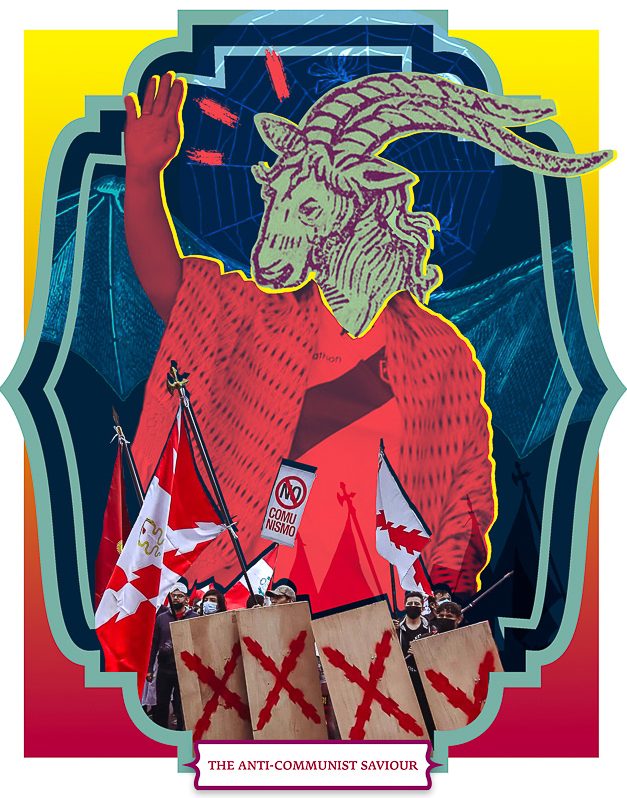 [Note: Facebook is not allowing this article to be posted, saying it uses “misleading links or content to trick people to visit, or stay on, a website.” Consortium News has submitted a review to Facebook indicated that FB has not understood the article that is about an important issue.]
[Note: Facebook is not allowing this article to be posted, saying it uses “misleading links or content to trick people to visit, or stay on, a website.” Consortium News has submitted a review to Facebook indicated that FB has not understood the article that is about an important issue.]
By Vijay Prashad
Tricontinental: Institute for Social Research
 There has been widespread consternation about how to understand Donald Trump’s emergence as a serious candidate for U.S. president since 2016.
There has been widespread consternation about how to understand Donald Trump’s emergence as a serious candidate for U.S. president since 2016.
Far from an isolated phenomenon, Trump rose to power alongside other strongmen such as Viktor Orbán, prime minister of Hungary since 2010; Recep Tayyip Erdogan, president of Turkey since 2014; and Narendra Modi, prime minister of India since 2014.
People like this, who came to power and cemented their rule through liberal institutions, seem to be impossible to permanently remove through the ballot box. It has become clear that a rightward shift is taking place in liberal democratic states, whose constitutions emphasise multi-party elections while allowing the space for one-party rule to be gradually established.
The concept of liberal democracy was and is a highly contested concept that emerged from European and U.S. colonial powers in the 18th and 19th centuries.
Its claims of internal pluralism and tolerance, the rule of law, and the separation of political powers came at the same time as its colonial conquests and its use of the state to maintain class power over its own societies. Liberalism today cannot be easily reconciled with the fact that the North Atlantic Treaty Organisation (NATO) countries account for 74.3 percent of world military spending.
Countries with constitutions that emphasise multi-party elections have increasingly seen the gradual establishment of what is effectively one-party rule. This one-party rule may at times be masked by the existence of two or even three parties, concealing the reality that the difference among these parties has become increasingly negligible.
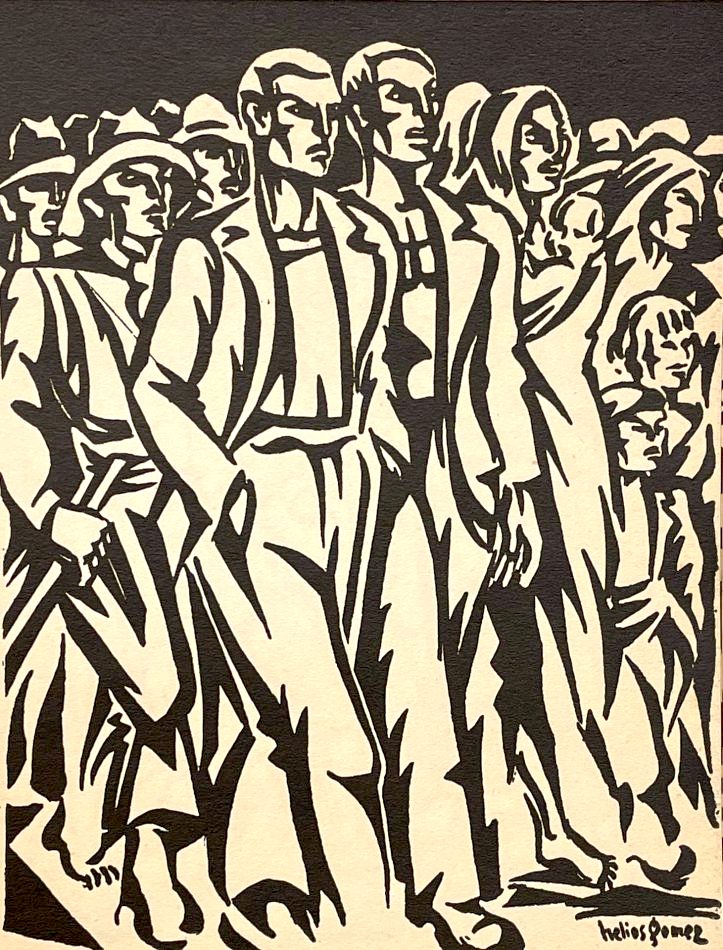
Helios Gómez, Spain, “Viva Octubre” or “Long Live October,” 1934.
It has become apparent that a new kind of right wing has emerged not only through elections but by exerting dominance in the arenas of culture, society, ideology and the economy, and that this new kind of right wing is not necessarily concerned with overthrowing the norms of liberal democracy.
This is what we called “the intimate embrace between liberalism and the far right,” following the writings of our late senior fellow Aijaz Ahmad.
The formulation of this “intimate embrace” allows us to understand that there is no necessary contradiction between liberalism and the far right and indeed that liberalism is not a shield against the far right, and certainly not its antidote. Four theoretical elements are key to understanding this “intimate embrace” and the rise of this far right of a special type:
-
Neoliberal austerity policies in countries with liberal electoral institutions vanquished the social welfare schemes that had allowed liberal sensibilities to exist. The state’s failure to take care of the poor turned into a harshness toward them.
-
Without a serious commitment to social welfare and redistributionist schemes, liberalism itself drifted into the world of far-right policies. These include increased spending on the internal repressive apparatus that polices working-class neighbourhoods and international borders alongside the increasingly stingy distribution of social goods, disbursed only if the recipients allow themselves to be stripped of basic human rights (such as by “agreeing” to the obligatory use of birth control).
-
In this terrain, the far right of a special type found that it became more and more accepted as a political force given the turn by the parties of liberalism to the policies for which the far right had advocated. In other words, this tendency to draw from far-right policies allowed the far right to become mainstream.
-
Finally, the political forces of liberalism and the far right unified across the board to diminish the left’s grasp on institutions. The far right and its liberal counterparts have no fundamental economic differences regarding class. In the imperialist countries, there is a very high confluence of viewpoints on maintaining U.S. hegemony, hostility and contempt for the Global South, and increased jingoism, as seen by the full-throttled military support for the genocide Israel is conducting against Palestinians.
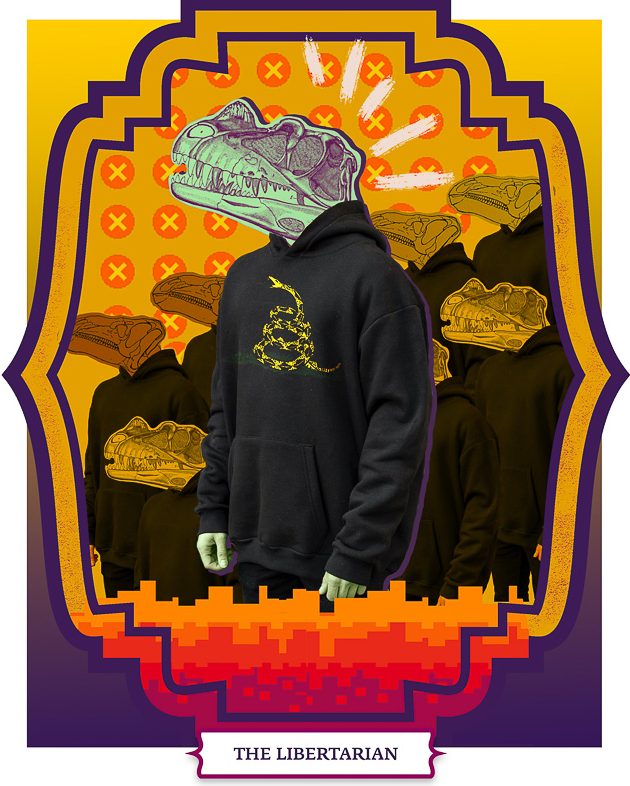
After the defeat of Italian, German, and Japanese fascism in 1945, commentators in the West worried about the incubation of the far right in their societies. Most Marxists, meanwhile, recognised that the far right had not emerged out of nothing, but out of the contradictions of capitalism itself. The collapse of the Third Reich was only a phase in the history of the far right and the development of capitalism: it would emerge again, perhaps wearing different clothes.
In 1964, the Polish Marxist Michal Kalecki wrote the stimulating article “The Fascism of Our Times” (“Faszyzm naszych czasów”). In that essay, Kalecki said that the new kinds of fascistic groups that were emerging at the time appealed “to the reactionary elements of the broad masses of the population” and were “subsidised by the most reactionary groups of big business.”
However, Kalecki wrote, “the ruling class as a whole, even though it does not cherish the idea of fascist groups seizing power, does not make any effort to suppress them and confines itself to reprimands for overzealousness.”
This attitude persists today: the ruling class as a whole fears not the rise of these fascist groups, but only their “excessive” behaviour, while the most reactionary sections of big business support these groups financially.

Mario Schifano, Italy, “No,” 1960.
A decade and a half later, when Ronald Reagan seemed to be on the threshold of becoming the president of the United States, Bertram Gross published Friendly Fascism: The New Face of Power in America (1980), which drew liberally from The Power Elite (1956) by C. Wright Mills and Monopoly Capital: An Essay on the American Economic and Social Order (1966) by Paul A. Baran and Paul M. Sweezy.
Gross argued that since large monopolistic firms had strangled democratic institutions in the United States, the far right did not require jackboots and swastikas: this orientation would come through the very institutions of liberal democracy. Who needs tanks when you have the banks to do the dirty work?
The warnings of Kalecki and Gross remind us that the intimacy between liberalism and the far right is not a new phenomenon but one that emerges from deep within liberalism’s capitalist origins: liberalism was never going to be anything but the friendly face of capitalism’s normal brutality.
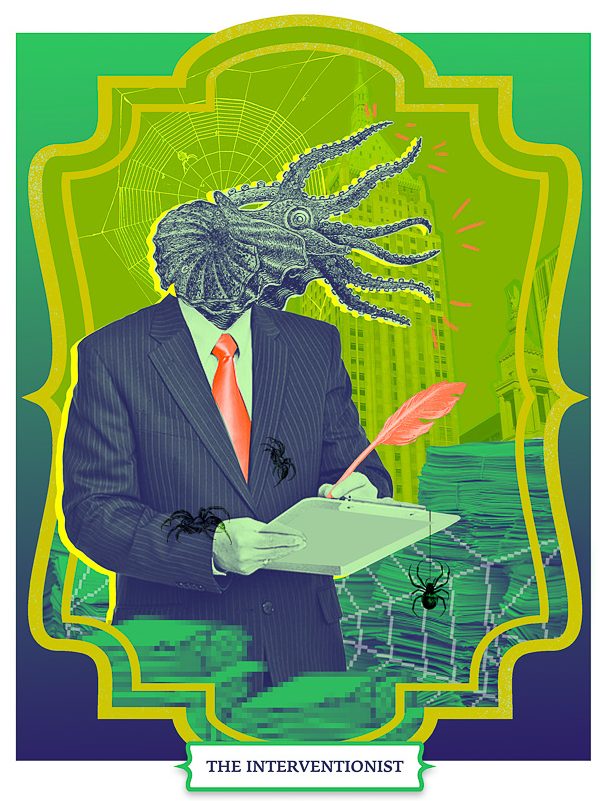
Liberals are using the word “fascism” to distance themselves from the far right. This use of the term is more moralistic than precise since it denies the intimacy between liberals and the far right. To that end, we have formulated 10 theses on this far right of a special type, which we hope will provoke discussion and debate. This is a provisional statement, an invitation to a dialogue.
Thesis One. The far right of a special type uses democratic instruments as much as possible. It believes in the process known as the “long march through the institutions,” through which it patiently builds political power and staffs the permanent institutions of liberal democracy with its cadre, who then push their views into mainstream thought.
Educational institutions are also key to the far right of a special type since they determine the syllabi for students in their respective countries. There is no need for this far right of a special type to set aside these democratic institutions as long as they provide the path to power not just over the state, but over society.
Thesis Two. The far right of a special type is driving the attrition of the state and transferring its functions to the private sector. In the United States, for instance, its proclivity for austerity is helping gut the quantity and quality of cadre in core state functions, such as the U.S. Department of State.
Many of the functions of such institutions, now privatised, instead take place under the auspices of non-governmental organisations led by newly emergent billionaire capitalists such as Charles Koch, George Soros, Pierre Omidyar and Bill Gates.
Thesis Three. The far right of a special type uses the repressive apparatus of the state as much as is legally permissible to silence its critics and demobilise movements of economic and political opposition. Liberal constitutions provide wide latitude for this kind of use, which liberal political forces have taken advantage of over time to quell any resistance from the working class, peasantry, and left.
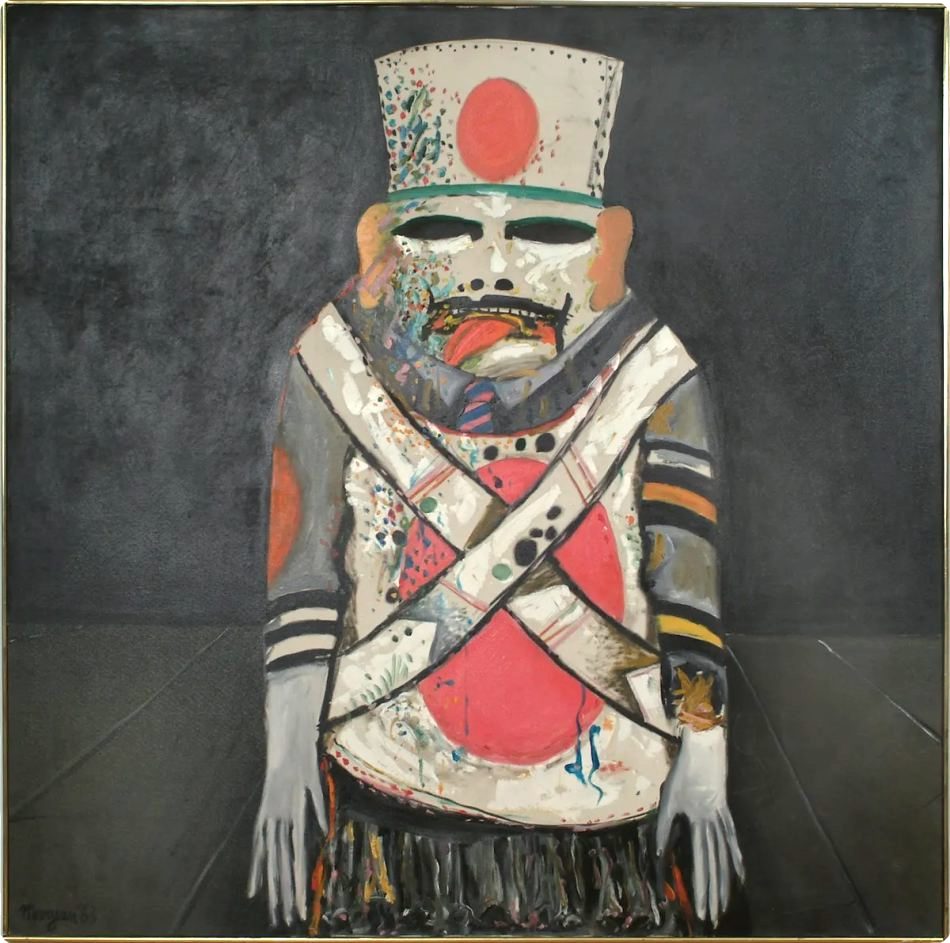
Maryan, Poland, “Personnage” or “Character,” 1963.
Thesis Four. The far right of a special type incites a homeopathic dose of violence in society by the more fascistic elements within its political coalition to create fear, but not enough fear to turn people against it. Most middle-class people the world over seek convenience and are disturbed by inconvenience to themselves (such as that produced by riots, etc.).
But, on occasion, an arms-length assassination of a labour leader or an arms-length threat made to a journalist is not blamed on the far right of a special type, which often hastily denies any direct association with the fringe fascistic groups (which are nonetheless linked organically to the far right).
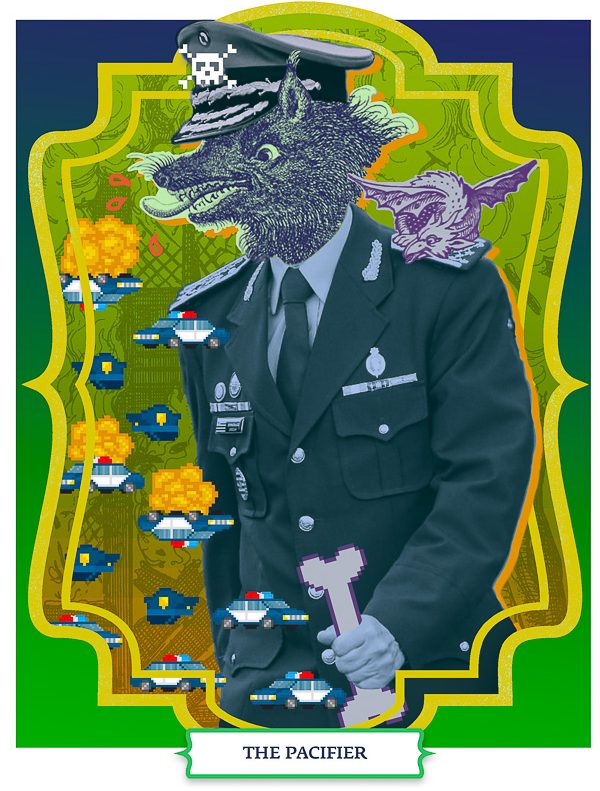
Thesis Five. The far right of a special type provides a partial answer to the loneliness that is woven into the fabric of advanced capitalist society. This loneliness stems from the alienation of precarious working conditions and long hours, which corrode the possibility of building a vibrant community and social life.
This far right does not build an actual community, except when it comes to its parasitic relationship with religious communities. Instead, it develops the idea of community, community through the internet or community through mass mobilisations of individuals or community through shared symbols and gestures. The immense hunger for community is apparently solved by the far right, while the essence of loneliness melts into anger rather than love.
Thesis Six. The far right of a special type uses its proximity to private media conglomerates to normalise its discourse and its proximity to the owners of social media to increase the societal acceptance of its ideas. This highly agitational discourse creates a frenzy, mobilising sections of the population either online or in the streets to participate in rallies where they nonetheless remain individuals rather than members of a collective. The feeling of loneliness generated by capitalist alienation is dulled for a moment, but not overcome.
Thesis Seven. The far right of a special type is a tentacular organisation, with its roots spread across various sectors of society. It operates wherever people gather, whether in sports clubs or charitable organisations. It aims to build a mass base in society rooted in the majority identity in a given place (whether race, religion, or a sense of national being) by marginalising and demonising any minority. In many countries, this far right relies upon religious structures and networks to ever-more deeply embed a conservative view of society and the family.

Thesis Eight. The far right of a special type attacks the institutions of power that are the very foundation of its socio-political basis. It creates the illusion of being plebian rather than patrician, when in fact it is deep in the pockets of the oligarchy. It creates the illusion of the plebian by developing a highly masculine form of hyper-nationalism, the decadence of which drips out in its ugly rhetoric. This far right straddles the testosterone power of this hyper-nationalism while playing up its portrayed victimhood in the face of power.
Thesis Nine. The far right of a special type is an international formation, organised through various platforms such as Steve Bannon’s The Movement (based in Brussels), the Vox Party’s Madrid Forum (based in Spain), and the anti-LGBTQ+ Fellowship Foundation (based in Seattle).
These groups are rooted in a political project in the Atlantic world that enhances the role of the right wing in the Global South and provides them with the funds to deepen right-wing ideas where they have little fertile soil. They create new “problems” where they did not exist at this scale before, such as the fanfare over sexuality in eastern Africa. These new “problems” weaken peoples’ movements and tighten the right’s grip over society.
Thesis Ten. Though the far right of a special type might present itself as a global phenomenon, there are differences between how it manifests in the leading imperialist countries versus the Global South. In the Global North, both liberals and the far right vigorously defend the privileges that they have gained through plunder over the past five hundred years – through their military and other means – while in the Global South the general tendency amongst all political forces is to establish sovereignty.
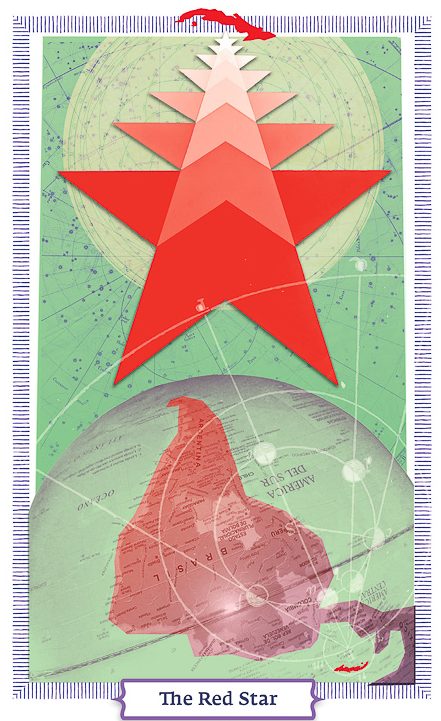
The far right of a special type is emerging in a period defined by hyper-imperialism to mask the actuality of hideous power and pretend that it cares about the isolated individuals that it instead harms. It knows human folly well and preys on it.
Unless otherwise noted, the art in this newsletter comes from the dossiers New Clothes, Old Threads: The Dangerous Right-Wing Offensive in Latin America(2021) and What Can We Expect from the New Progressive Wave in Latin America?(2023).
Vijay Prashad is an Indian historian, editor and journalist. He is a writing fellow and chief correspondent at Globetrotter. He is an editor of LeftWord Books and the director of Tricontinental: Institute for Social Research. He is a senior non-resident fellow at Chongyang Institute for Financial Studies, Renmin University of China. He has written more than 20 books, including The Darker Nations and The Poorer Nations. His latest books are Struggle Makes Us Human: Learning from Movements for Socialism and, with Noam Chomsky, The Withdrawal: Iraq, Libya, Afghanistan and the Fragility of U.S. Power.
This article is from Tricontinental: Institute for Social Research.
Views expressed in this article may or may not reflect those of Consortium News.

I like religion is the opiate of the masses,has nice ring to it especilly when you consider human existance is so muchmore specia when it happens so wonderfully spontaneously, if yoy ever recover from near death you will know how special, ask any junky or a man with a CIB
“Liberalism was never going to be anything but the friendly face of capitalism’s normal brutality.”
This single statement sums it up for me. With predatory capitalism as the primary doctrine underpinning the western political spectrum, the practical differences between right and left don’t matter much.
Both sides steal from each other, when it suits them, but both sides seek the same goal – power, and enough control of the people to enable their profitable pursuit of amassing wealth.
For most of them, ideology is just a tool, not a purpose.
Morally speaking, Americans [and Canadians with our prime ministers, for that matter] collectively deserve far better than just either the usual conservative or neo/faux liberal in the White House.
But then maybe any U.S. president who, unlike Trump, would make a serious attempt at implementing truly humane, progressive policies — notably universal single-payer healthcare, a significant reduction in greenhouse-gas emissions and military spending, a genuine anti-war effort, and increasing the minimum wage while also reigning in Wall Street abuse/corruption, etcetera — would likely be SUCCESSFULLY assassinated [by lone gunmen, of course]. …
A few social/labor uprisings notwithstanding, notably the Bolshevik and French revolutions, it seems the superfluously rich and powerful have always had the police and military ready to foremost protect their big-money/-power interests, even over the basic needs of the masses.
Even today, the police and military can, and probably would, claim [using euphemistic or political terminology, of course] they had to bust heads to maintain law and order as a priority during major demonstrations, especially those against economic injustices.
Indirectly supported by a complacent, if not compliant, corporate news-media, which is virtually all mainstream news-media, the absurdly unjust inequities/inequalities can persist.
Therefore, I can imagine there were/are lessons learned from those successful social/labor uprisings — a figurative How to Hinder Progressive Revolutions 101, perhaps? — with the clarity of hindsight by the big power/money interests in order to avoid any repeat of such great wealth/power losses.
And the more they make, all the more they want — nay, have — to make next quarterly. It’s never enough, and an increasingly corrupt corporate news-media will implicitly or even explicitly celebrate them.
This is a good analysis as far as it goes, but doesn’t adequately distinguish ‘agenda’ from ‘adaptation’. The behaviors, right, left and center, are adaptive; until some critical mass of thinkers (with some power) clearly explicate what these various systems of political and economic behavior are adapting to, we will be stuck with language and meanings that finally fail in their purpose. Issues such as population pressure, the detailed impacts of technology creations and human hierarchical patterns seem to supply the motive structures; without real changes in motive structure, there will never be more than cosmetic changes to our adapted actions.
freedo to learn and enjoyyour brain as a personal possesion
It was always useful for the liberals that people mistake “liberalism” as meaning freedom for the people when its actual political meaning always was freedom for capital. Capital is free to cross borders unhindered while people are not, and it does so constantly as markets open and close around the world. As Asian markets close money moves into European markets, then America, then back to Asian. And today capital is mostly unregulated while we the people are perhaps the most regulated we have ever been.
That’s what Liberalism means but as not everybody knows it, those who are greedy and resent restrictions on their money’s ability to exploit a market, an industry, a people and so forth, they like to conflate that reining-in with “wishy-washy, bleeding-heart liberals”. It works every time, always has done, and people cheer on those attacks thinking they’re attacking people not the excesses of capital, and so don’t realise they’re defending something which is generally working against their own interests.
“If voting changed anything [in favor of the weak/poor/disenfranchised] they’d have made it illegal.”
(‘Calamity’ Jane Bodine, Our Brand Is Crisis)
______
The First Past The Post ballot used in the U.S., Canada and England largely masquerades as real democracy. And, of course, many voters get to wait in long, bad-weather lineups to participate. While the FPTP ballot may technically qualify as democratic within the democracy spectrum, it is the PR system thus governance that actually is representative, regardless of ideology.
Canada’s FPTP system is particularly non-democratic. It has on albeit-rare occasion resulted in majority governments elected by less than one fifth of eligible voters. You don’t get that with PR-elected governances.
Nevertheless, FPTP does seem to serve corporate lobbyists well. I believe it is why such powerful interests generally resist attempts at changing from FPTP to proportional representation electoral systems of governance, the latter which dilutes corporate influence. Low-representation FPTP-elected governments, in which a relatively small portion of the country’s populace is actually electorally represented, are likely the easiest for lobbyists to manipulate or ‘buy’.
It can and often enough does (at least here in Canada) enable the biggest of businesses to get unaccountably even bigger, defying the very spirit of government rules established to ensure healthy competition by limiting mass consolidation. And corporate lobbyists will write bills for governing representatives to vote for, albeit perhaps with some amendments, and have implemented, supposedly to save the elected officials their own time.
For the intimate connection between Liberalism and Fascism you might want to have a look at Ishay Landa’s ‘The Apprentice’s Sorcerer: Liberal Tradition and Fascism (Studies in Critical Social Sciences)’. I’d also consider most of the ten thesis to be true for ‘classic’ Fascism as well, and that a lot of what are often called earmarks of Fascism are just ‘folklore elements’ to hide the politico-economic goals of Fascism which was and is to install and secure the power and the wealth of a tiny minority. One might also consider Liberalism being just a softer version of that rule, leaving at least some breath for the expropriated majority. The ‘family version’ if you like…
The fact that I come from a former communist country, reading this, I take this article with a grain of salt.
The far right is always a response to the far left.
It is through far left ideology that the oligarcho-corporatism controls the West. A good example is the gaming industry where all the gaming corporation insert so called equality in terms of LQBTQ, gender or finance, yet, at the same time, push gambling through games to little children and are ripe in internal sexual allegations.
– Another example is in fashion, where you have the likes of Zara who proudly fly the LGBTQ flag and pride themselves in gender equality yet they stole the designs of traditional clothing from Romania. It was a huge scandal.
– Another example is the Western media where you read articles upon articles on the need of equality, LGBTQ tolerance, Marxist ways of giving the private means of production back to the population (see Yanis Varoufakis’ articles from a few years ago) yet the same news papers push the war doctrine in Ukraine, demonising the Russians.
This is why the likes of Trump and Orban are in power. It is the response of the society to the increasing far left ideology and its hypocrisy.
The fact that the author does not mention anything about the ills of the far left, makes one wonder on the veracity of his statements.
The far right and the far left ideology are ills and both must be brought to account.
This type of articles will never work in Eastern Europe because marxism is seen just as evil as nazism. Not only that but anything that has to do with pushing equality by any means necessary gives us nightmares of communism.
Just because you came from “a former communist country” does not make your ridiculous assertions true. Ironically, your arguments are modern right-wing nonsense. The oligarchs/corporate world control the West through “far-left” ideology? Only in your mind. The author correctly describes right-wing and fascistic actors on the march around the world, and that is bad news indeed. What you think is “far-left” is in fact neoliberalism. Corporations push “diversity and inclusion” to get as many formerly left out people on their bandwagon as possible. The last thing they want are all those marginalized people getting together with the exponentially increasing groups of newly marginalized people and demanding real change–demanding revolution, no more war, and reining in them–the oligarchs, corporate titans, finance Capitalists, and others who exploit and plunder.
With all due respect, you have just contradicted yourself. Diversity and Inclusion (and I would add equality if outcome) are extreme left-wing ideology, that is neo-marxist ideology. The fact that neo-liberals use far left ideology to “get as many formerly left out people on their bandwagon” does not negate that far left ideology is being used en-masse and that the West is rife with it.
The Western Universities are now a breeding ground for neo-marxist and marxist ideas.
All Eastern European countries that have been under communist rule sees this as a shift of the West from classical liberalism to neo-marxism. We are in a better place to see this than you in the West because you have romanticised marxism to such a degree that you can’t even see its dangers anymore.
Yes, I am aware that the Oligarcho-Corporative world is using this ideology to further erode the fabric of Western civilisation (the more demoralised the people is, the more easy is to control it – the communist did it as well), even though they don’t believe in it.
The Oligarcho-Corporate world is not even fascistic or right-wing, nor left-wing or marxist: it is an elitist power hungry cartel that use whatever ideology clicks with the population to blind them from the never ending war agenda. And at this point, it is neo-marxism. Neo-marxism clicks with the West now. I am shocked that you can’t see this. For me, as an Eastern European, it is clear as day.
Neither Trump or Orban created the war in Eastern Europe, the so called neo-liberals did (the O-C cartel). This is the problem with this article. IT shifts the blame on something that doesn’t really exist: right-wing fascism. Right-Wing fascism is not in power anywhere in the West. It is the O-C cartel.
And this is the point I am stressing, at this moment, the O-C cartel is using neo-marxist drivel to subdue the population.
“The Western Universities are now a breeding ground for neo-marxist and marxist ideas.”
No, they’re not. Any odd marxist would explain to you why all this DEI blunder *prevents* any real material equality and how it just serves to hide the ever more absurd inequality that is at the center of the ‘Oligarcho-Corporative world’ that you quite rightly identify. After all, you admit that they are only *using* this ideology, and might I add, in a purely superficial way. As for the real fascism of that world you might want to have a look at Sheldon Wolin’s ‘inverted totalitarianism’.
Thank you for speaking up. It’s disheartening to read the left and the right accusing one another of the same things over and over. They’re both right!
Liberalism is just Reaction, but with the pretense of democracy. From the American (especially) and then the thermidorian (French result) revolutions, bourgeois so-called “liberalism” is just the sees of an unavoidable iteration of bonapartism.
it is systemic, but that does not mean it is not hyperfocused and much more intellectual than is often assumed, imo. verhoeven’s star ship troopers still looks like a good portrayal of the mindset.
Ideology is only mental gymnastics for academics. It contributes nothing to society beyond violence. Ultimately, left versus right boils down to good versus evil. Choose a side and all rational thought ends. The fight reflex is triggered. There is no going back.
Huh?
Tim N–Bob McD is talking about mental masturbation. It leads to emotional responses. Where would these people be without someone to feed them? Stealing from people who know what’s important, that’s where. And here we are.
It is essential to remember that the United States is still an unprecedented (and unfinished) experiment, in the feasibility of making and maintaining a nation-sized republic in the post feudal world. The republics of classical antiquity on which it is patterened were designed to adminster much smaller entities, city-states. Given the horrificly violent global empire that this country has so seamlessly evolved into, the jury is still out on whether this is such a good idea after all. Given the vast natural and human resources of a rich continent to prey on, virtually any system would have prospered as spectacularly. Today we are told that fascism is a kind of emotional disorder that appeals to thugs, loser, haters, but the essential fascist critique of the inescapable corruption of liberal democracy by inadequately regulated capitalism cannot be so easily dismissed.
Our great misfortune is perhaps that the American colonies gained their independence from Britain a little too soon. If self-government had come a bit later, say in the mid-1800s, we might have had the influence of collectivism, majoritarianism, Chartism, and Benthamism, rather than the austere views of the patron saint of aristocracy, John Locke. Locke interpreted “liberty” from the viewpoint of the moneyed class, its members’ priority being the conservation and expansion of their political power and economic privilege.
” 74.3 % of all military spending is by NATO related countries”. As real military budgets are often opaque to external assessment is this figure quoted reliable ? Still, it would not be surprising if this amount was near the mark considering all these Countries are major armament manufacturers and suppliers.
No doubt the spending of these ‘ post colonial powers is enormous and gives insight into their history & power base which in some sense is as real today as it was during their Colonial heyday’s.
Your article provokes further thought and discussion on many levels which is welcomed.
Real military budgets are usually vast underestimates, so anyone looking at the budgets presented can still draw the same conclusions. The US military budget is actually around 1.4 trillion, if memory serves. It’s always undercounted.
The THESES section of this article provides a good summary of how violence, fear , secretiveness and deception come to dominate a political system if there is not widespread vigilant opposition. One of the most hopeful books of recent publication which challenges the idea that this development of aggressive hierarchies is somehow natural or inevitable is The Dawn of Everything by D Graeber and D Wengrow ,which shows the variety of human social structures going back to early civilizations.
Given:
-Certain traits of capitalism are unavoidable. (ie. it can’t exist without perpetual growth, that it’s growth requires new markets and or increased exploitation of labor)
-These traits of capitalism lead unavoidably to crisis (ie. over-accumulation, no way to bring capital and labor together for any useful end)
Then:
-Current neoliberal policy is capitalism preemptively trying to save itself.
-And while doing so is lighting the world on fire with war and murder and general mayhem..
Why:
-Aren’t the smartest among us trying to look at something, anything, other than capitalism as way of defining ourselves culturally and socially as a people.
If a future life form comes to earth after capitalism has annihilated every living thing, and finds only the physical remains of profit, the mass graves of the less fortunate, what good was our time here.
Can capitalism exist in some less menacing form?
I don’t think so, it requires that we somehow get a grasp on corporate driven greed. See “certain traits of capitalism are unavoidable” above.
Marx, a pretty smart guy, looked at something other than capitalism and came up with communism, which is just as easily subverted by various agendas unhelpful to the continued existence of humanity as capitalism. “We have met the enemy and he is us.” (And there are a whole lot more of us now–more than twice as many– than when that observation was made in 1970.)
Capitalism manifested out of the exploitation of labor.
Socialism is the labor owning the means of production.
Communism is an ideal that has never existed. “From each according to ability, to each according to need”
What was called Communism were Dictatorships.
The enemy is us, your right.
How do we stop capitalist violence (eg. Gaza, Ukraine) in the pursuit of self-interest?
How do we subvert the interest of the few capitalists and prioritize the interests of the many?
Is there something we can pivot to economically that would take the place of the MIC?
Can we re-install the regulations the capitalists themselves tore down?
Do we just stand by and watch inverted pyramid of financialization burn itself down, taking the rest of this country with it?
If we can install some sort of real Socialist reform, how do we keep human leaders from debasing themselves with the very power entrusted to them by the people?
How do we begin?
Alastair Crooke on The Duran the other day echoed Mearsheimer by saying it’s going to take some sort of military defeat administered to the Neocons for any kind of beginning.
I believe Mr. Crooke characterized it as a “catharsis”
The way I’d assess the situation is 1) via what you say 2) via thesis five, and 3) via what I call Rene Girard’s anthropology.
Yes, this idea through these means. The idea that lures. How can you have a community through the internet? It’s pie in the sky…in cyberspace. Although neither can community only be in a set apart geographical location. I think, when it tries to come along, half of it is tied up with how people are communicating. Probably since the days of Town Meeting of the Air and Phil Donahue it moved from communication in print to a way people were actually talking [whereas at the time just post Gutenberg it had moved to some extent from actual speech to things in print]. Today with podcasts even moreso. Of course, via ways of speaking, this happened in the past also at universities, or say among Socrates’ little group of followers for example. But for folks not right in the midst of something like the latter or at university, people might run into news of this idea-of-community through something in print. To me, though, like I say, half of community seems to come through words, a new conglomeration of words. Yet and still with this luring aspect…the phones do enhance it [of course injecting visual aspects as well as verbal]. Right and left alike are lured by such vying “communities” whether positive or retrograde; thus the left can merge with a right of a special type? And that this sameness is extremely important [made possible by the phones?], in Girard’s parlance…”undifferentiation”? Which gives rise to rivalry, and scapegoats must be sacrificed to dispel tension the rivalry brings into existence. Which is where the hatred has its place.
Another cause for projecting on scapegoats seems to be, say, that normally satirizing shadows of individuals are too bottled up…or at any rate that uncreative work allows their shadows no avenues to drain off their energies.
Please forgive the tangled-up-in-blue aspect of all this!
I agree. It is hard to have a meaningful human interaction with just words in a non-personal on-line forum such as this. We don’t have any visual clues, body language, appearance, comportment, tone of voice, read on aggressiveness, intent etc… that the human animal relies on to literally, at times, save ones life.
And I can attest to my shadow wanting to project misery on any scapegoat that was available after a lifetime of doing something I hated, to provide for people who came to resent me, to buy things they didn’t need.
Only capitalists like capitalism.
If you worked for a living, especially during the period of neoliberalism, Oct. 1979 to present, it was one long precarious pending emergency.
Reading through the 10 theses, what I believe Mr. Prashad is trying to tell us is the depth of depravity capitalism in a left/right nexus will happily reach:
“to mask the actuality of hideous power and pretend that it cares about the isolated individuals that it instead harms”
Capitalism vs Socialism
Can we merge those two things? We are going to have to figure out some way.
At this point, I have lost the bubble on the meaning of “liberalism”. I used to consider myself a liberal, but given today’s environment, I no longer know what to call myself even though my beliefs haven’t changed. It seems there is no true definition of “liberalism” and it depends entirely on whatever your imagination wishes.
Most have forgotten the origin of the word liberal. It was for centuries a word meaning generous. It is used several times in the Bible to describe those who give to others in need, and is one of the highest terms of praise in the King James Bible. I do not know what the Hebrew word from which it was derived is, but I assume it is much the same in meaning. The word conservative, by the way, never appears in the Bible. ( I do not believe in the divine authority of the Bible, but know it pretty well)
The political association of ‘liberality ” or ‘liberalism ‘with liberty is typical of the political adoption of a word; distortion is inevitable. In the end we have Neo-liberalism which seems to mean the opposite of both liberty and generosity, but is the generosity of the payday lender backed by the liberty of military intervention.
Beautiful. I just shared this on FB and its response in immediately removing it as “spam” with a warning, illustrates your point fabulously
Superb analysis. Its got to the point here in Aotearoa where social/economic policies espoused by our Greens now considered far left would not have been out of place in our conservative National Party 40 yrs ago. Thats how far to the right we have moved.
Look for the “Politics of Hate.” Its the calling card.
When you find campaigns based on hate, you are looking at them. It does not matter who they hate. They will try to trick and lie to people and pretend that some campaigns of hate should be supported. This only serves to draw more people into the cycle of hate. Hate is the easy button to push. If you want to find the enemy, look for the politics of hate. Its their calling card, and they don’t leave home without it.
“Darkness can not drive out darkness. Only light can do that.
Hate can not drive out hate, Only love can do that.”
— Dr. M.L.King
When you see campaigns of love and peace and solidarity together, then you are looking at the true resistance to the ‘far-right’. But, if you look and all you see is a different form of hate, with different targets, then, remember, hate can not drive out hate. “Hate Trump” may get votes to try to defeat “Hate Woke”, but Hate still wins no matter which hair style is in charge of years 25 to 29 of the Forever Wars, or years 11-14 of World War III depending on how you look at it.
Beautifully said. Treat others the way you wish to be treated is a basic moral principal throughout cultures and people of good will.
You are obviously the wisdom at the love end of the rainbow, Kate!
@rainbow kate
it boils down to the age-old “divide and CONquer!” logic.
spreading hate = dividing people. and divided they fall.
and they fall for all kinds of lies they swallow so eagerly.
that’s what i find particularly worrisome, maddening:
more or less “hidden persuaders” can trick far too many
people into opting against their own good, to the utter
detriment and devastation of the many needy
but for the benefit of the few insatiably greedy.
and i keep wondering whether human beings
were ultimately made to, i.e. are truly capable
of loving their neighbors as themselves.
one might argue that, if people truly loved themselves,
they would easily be able to love others the same way.
well, “peace does not pay!”, all warmongers say.